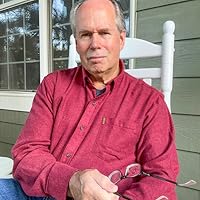History Quotes
Quotes tagged as "history"
Showing 2,971-3,000 of 9,073

“Perhaps you have forgotten. That’s one of the great problems of our modern world, you know. Forgetting. The victim never forgets. Ask an Irishman what the English did to him in 1920 and he’ll tell you the day of the month and the time and the name of every man they killed. Ask an Iranian what the English did to him in 1953 and he’ll tell you. His child will tell you. His grandchild will tell you. And when he has one, his great-grandchild will tell you too. But ask an Englishman—” He flung up his hands in mock ignorance. “If he ever knew, he has forgotten. ‘Move on!’ you tell us. ‘Move on! Forget what we’ve done to you. Tomorrow’s another day!’ But it isn’t, Mr. Brue.” He still had Brue’s hand. “Tomorrow was created yesterday, you see. That is the point I was making to you. And by the day before yesterday, too. To ignore history is to ignore the wolf at the door.”
― A Most Wanted Man
― A Most Wanted Man

“At first I thought I would study literature. Then, however, I realised I loved true stories even better than imaginary ones.”
― The Historian
― The Historian

“The historian is never more himself than when he is searching his mind for a general statement that shall in itself give the hint of its own underlying complexity.”
― The Whig Interpretation of History
― The Whig Interpretation of History
“The prevailing vision of history, as an egalitarian pageant of equally valid, self-authenticating "perspectives" on the past representing the "voices" of particular groups, is dangerous to society at large. It reserves a special place for everyone, which is exciting news for political extremists, con-artists, and megalomaniacs eager to register their self-interested propaganda as legitimate contributions to a "broader perspective" of history.”
― Stones of Contention
― Stones of Contention

“The past is the present's toy and plaything, gratifyingly unable to answer back.”
― The Man in the Red Coat
― The Man in the Red Coat

“Every generation adds another link to the chain that we call history.”
― Alice and The Machine Gunner
― Alice and The Machine Gunner

“...Slavery finds its origins in war. But everywhere we encounter it slavery is also, at first, a domestic institution. Hierarch and property my derive from notion of the sacred, but the most brutal forms of exploitation have their origins in the intimate of social relations: as perversions of nurture, love and caring. Certainly, those origins are not to be found in government...”
―
―

“The history of our nation, any nation, is not there for people to like or dislike. Undoubtedly, some is glorious and some an abomination. For sure, any attempt to erase our history will not change that history. History, whether glorious or sorted is there to be learned from. Let's finally start winning the 'human race' and create history that leaves us, now and forever, proud.”
―
―
“Nobody is entitled to a history that makes them feel good about themselves or the groups to which they belong.”
― Stones of Contention
― Stones of Contention
“There are many histories of North America. The experiences of successive waves of immigrants are distinct, as are—to a large degree—the histories of the different classes compromising the immigrant waves. The histories of the various peoples native to the continent are also quite distinct within themselves. The story of each of these groups holds a rightful claim to its own integrity, to its own place and fullness of meaning within the whole. To deny this is to distort.”
―
―
“To the Victorian public, proud of their national tradition of liberal policing and of Britain as a beacon of tolerance, the very idea of a political police carried the stigma of foreign despotism. In the nineteenth century, Britain’s elected politicians would never have dared venture anything resembling the kind of legislation that recent years have seen passed with barely a blink of the public eye, to threaten civil liberties that have for generations been taken for granted. That changing times demanding changing laws is hard to dispute, but if new powers are to be conceded it is essential that we be ever more vigilant in guarding against their abuse. Likewise, if our political leaders are allowed blithely to insist that ‘history’ should be their judge, then we should at least be in no doubt that the historians of the future will have access to the material necessary to hold those leaders to account for any deceptions they may have practiced. Histories bearing an official sanction, of the kind that appeal to today’s security services, are not a satisfactory alternative. This book is a pebble cast on the other side of the scales.”
― The World That Never Was: A True Story of Dreamers, Schemers, Anarchists, and Secret Agents
― The World That Never Was: A True Story of Dreamers, Schemers, Anarchists, and Secret Agents
“I see the rhetorical question "Who Owns the Past?" so frequently used by humanities and social science professors to provoke classroom discussions as needlessly and erroneously planting the idea that a living group of people could "own the past." Surely, any such claim should be taken no more seriously than the cast of Sesame Street should they claim to "own the alphabet.”
― Stones of Contention
― Stones of Contention

“The best stories that we can tell are the ones that we have lived. Therefore, never refuse the opportunity to live a story so that when your life is done, you will have left a story that will so inspire others that they will never refuse an opportunity to live theirs.”
―
―
“Fascinated by the utter ignorance of history here, esp regarding Trump & Hitler, or as I say "Hitler killed 40 million people, Trump hurt your feelings”
―
―
“These are not books, lumps of lifeless paper, but minds alive on the shelves. From each of them goes out its own voice, as inaudible as the streams of sound conveyed day and night by electric waves beyond the range of our physical hearing; and just as the touch of a button on our set will fill the room with music, so by taking down one of these volumes and opening it, one can call into range the far distant voice in time and s[ace, and hear it speaking to us, mind to mind, heart to heart.~~Gilbert Highet (quoted in Crossing Open Ground by Barry Lopez)”
― Across Open Ground
― Across Open Ground

“Let's take a positive view. The mountain is an emblem of all the forms of wholesale death: the deluge, the great conflagration (sterminator Vesevo, as the great poet was to say), but also of survival, of human persistence. In this instance, nature run amok also makes culture, makes artifacts, by murdering, petrifying history. In such disasters there is much to appreciate.”
― The Volcano Lover
― The Volcano Lover
“Love is history plus desire. Love is dominion.
It is supposed to attack you. When you send it out,
it stings you back like a slap of cold air.”
― Worldly Things
It is supposed to attack you. When you send it out,
it stings you back like a slap of cold air.”
― Worldly Things

“Humans turning electromagnetic radiation into a business is going to be regarded by future historians as one of the biggest biological disasters in history.”
―
―

“We are at a time in history where the smart will maintain a body chemistry that is distinctly different from the masses.”
―
―

“The shabbiness, even embarrassment, of Hazel Scott playing 'concert boogie woogie' before thousands of white middle-class music lovers, who all assumed that this music was Miss Scott's invention, is finally no more hideous than the spectacle of an urban, college-trained Negro musician pretending, perhaps in all sincerity, that he has the same field of emotional reference as his great-grandfather. the Mississippi slave”
― Blues People: Negro Music in White America
― Blues People: Negro Music in White America

“...Humans may not have begun their history in a state of primordial innocence, but they do appear to have begun it with a self-conscious aversion to begin told what to do. If this is so, we can at least refine our initial question: the real puzzle is not when chiefs, or even kings and queens, first appeared, but rather when it was no longer possible simply to laugh them out of court.”
―
―

“There are two kinds of people who live a life of perfection though works of virtue in spiritual affection.
The first are those who in all things mortify the body, performing the works of charity, and they have such pleasure in their works that they do not perceive that there can be any better state of being than that of works of virtue and a martyr's death, longing to persevere in it through the help of many prayers, always increasing their good intentions, always preserving this way of life, always holding fast as they do to it and convinced as they are that this is the best of all the states of being that can be. Such people, says Love, are blessed, but they become lost in their works, because of the satisfaction which they have in their state of being.
Such people, says Love, are called kings, but that is in a land where men see only with one eye, for truly those who have two eyes consider them as slaves.”
― Marguerite Porete: The Mirror of Simple Souls
The first are those who in all things mortify the body, performing the works of charity, and they have such pleasure in their works that they do not perceive that there can be any better state of being than that of works of virtue and a martyr's death, longing to persevere in it through the help of many prayers, always increasing their good intentions, always preserving this way of life, always holding fast as they do to it and convinced as they are that this is the best of all the states of being that can be. Such people, says Love, are blessed, but they become lost in their works, because of the satisfaction which they have in their state of being.
Such people, says Love, are called kings, but that is in a land where men see only with one eye, for truly those who have two eyes consider them as slaves.”
― Marguerite Porete: The Mirror of Simple Souls
“Först är allmänt veterligt, att alla våra grannar äre våre fiender, de Polen, Rysser och Dankske, så att ingen ort i Sverige, Finland och Livland kan säga, att han är för fienden säker, så att vi, snarast sagt, ingen landsort have fullkomligen att lita på. [...] Till det andre have vi platt inge vänner, som vår olägenhet går till hjärtat, och där än någre kunde finnes, som icke voro oss obevågne, är dock ingen hjälp eller undsättning av dem att förmoda. - Axel Oxenstierna, 1612.”
―
―
“My stint as a Sheeptilian solipsistic prophet began in an innocuous manner, but quickly spiraled into something that was out of control and very dangerous. I never foresaw that I’d become a fundamentalist extremist. The journey was unique and opened my mind to the possibilities that the Word of Shiligoth was a literal springboard and historical account of all life.”
― How Dad Found Himself in the Padded Room: A Bipolar Father's Gift For The World
― How Dad Found Himself in the Padded Room: A Bipolar Father's Gift For The World
In order to show you the best results, we have omitted less
relevant entries similar to the 3000 already displayed.
If you like, you can search for a specific quote
here.
All Quotes
|
My Quotes
|
Add A Quote
Browse By Tag
- Love Quotes 97k
- Life Quotes 75.5k
- Inspirational Quotes 72.5k
- Humor Quotes 43.5k
- Philosophy Quotes 29.5k
- Inspirational Quotes Quotes 27k
- God Quotes 26k
- Truth Quotes 23.5k
- Wisdom Quotes 23.5k
- Romance Quotes 23k
- Poetry Quotes 22k
- Death Quotes 20k
- Happiness Quotes 18.5k
- Life Lessons Quotes 18.5k
- Hope Quotes 18k
- Faith Quotes 18k
- Quotes Quotes 16.5k
- Inspiration Quotes 16.5k
- Spirituality Quotes 15k
- Religion Quotes 15k
- Motivational Quotes 15k
- Writing Quotes 14.5k
- Relationships Quotes 14.5k
- Life Quotes Quotes 14k
- Love Quotes Quotes 13.5k
- Success Quotes 13.5k
- Time Quotes 12.5k
- Motivation Quotes 12k
- Science Quotes 11.5k
- Knowledge Quotes 11k






